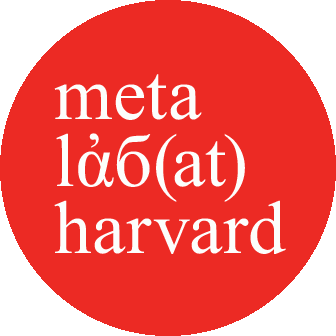Ars Electronica: Error – The Art of Imperfection
Date: 2018 Location: Linz, AustriaArs Electronica, held in Linz, Austria, is one of the world’s largest festivals for art, technology, and society. This year’s theme is “Error—The Art of Imperfection,” and it takes place from September 6-10, 2018. MetaLAB at Harvard will have a significant presence at the festival, with four of its members exhibiting their current projects.
Creative Researcher Sarah Newman’s Moral Labyrinth engages with the Value Alignment Problem in Artificial Intelligence by having users answer a series of questions that reveal the conflicting values we have within ourselves. Users can walk the physical labyrinth, which is made up of a series of questions laid out on the floor, or they can engage in a dialogue with a laptop, which poses follow up questions based on a user’s answer, and then prints out a question or an image for the user to take away.
Data Visualization Designer Kim Albrecht’s Distinction Machine shows the limits of computational language by having a computer render multiple shapes of different colors in the same location—the computer must “decide” to show one color or another. The resulting strange, intricate patterns are shown on tablets hung in the gallery space and reveal how computers are incapable of expressing ambiguity, which is the essence of the human experience.
Associate Director Matthew Battles and metaLAB affiliate Keith Hartwig will be experimenting with their project Invasive Spirits. Through data visualization, playful media, and “sensory gifts” of yeasty, fermented aromas, they’re exploring the sensory, scientific, linguistic, and commercial dimensions of invisible, invasive organisms in human life: the tangles of names, words, sensory experiences, and meanings that arise in our edible lives.
With support from the U.S. Embassy in Austria, metaLAB will be exhibiting these works in conjunction with Eveline Wandl-Vogt and her colleagues at the Austrian Academy of Sciences, who invited metaLAB to participate at Ars Electronica, providing crucial funding and logistic support as well. Wandl-Vogt directs the Academy’s portfolio of digital projects in the analysis of cultural and linguistic data, and has been exploring artful and scholarly collaborations with metaLAB since 2016.
Our friends at MIT’s Media Lab will also be joining us in Linz—Adam Horowitz, Judith Amores, and Oscar Rosello will be taking a version of Cocoon, a programmable dream machine, and Sands Fish and Nicole L’Huillier will be bringing Telemetron, an instrument designed to be performed in zero gravity.
With all involved, it’s clear that this collaboration is contributing to the conversation about our technological future in innovative, artistic ways.

